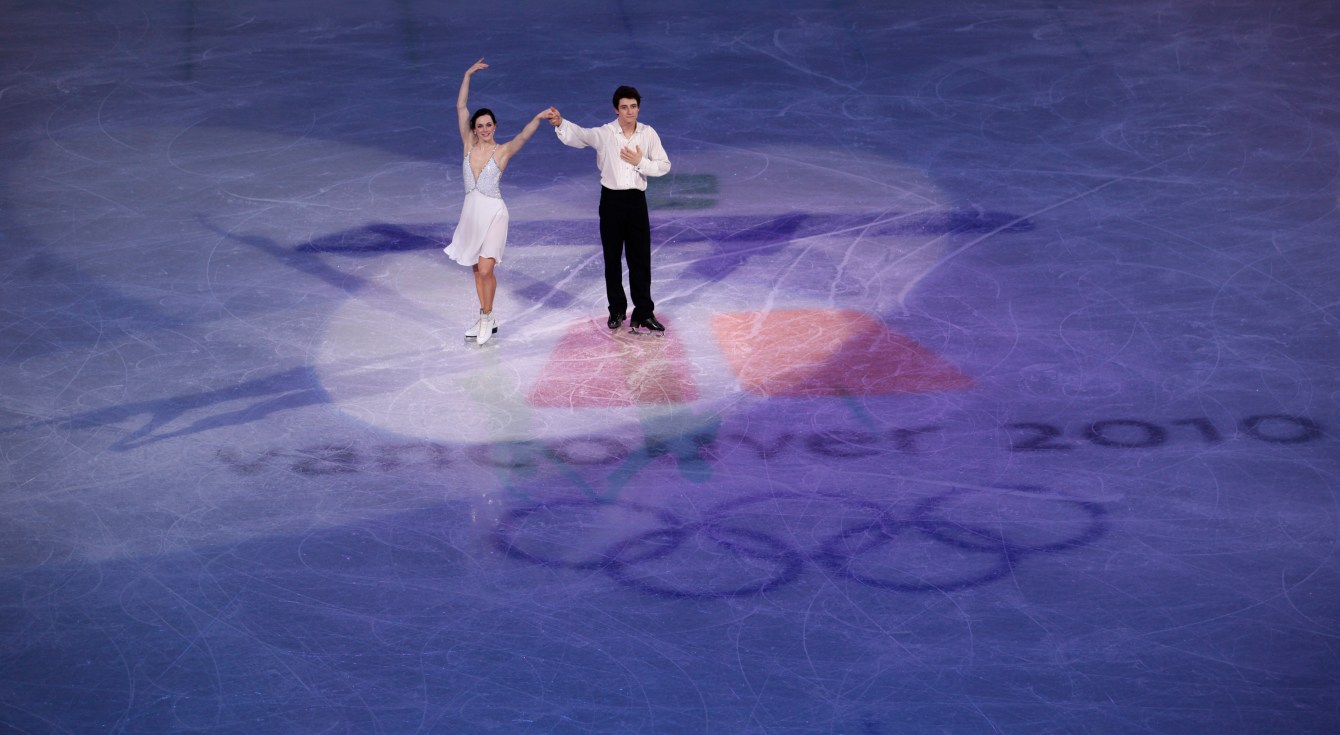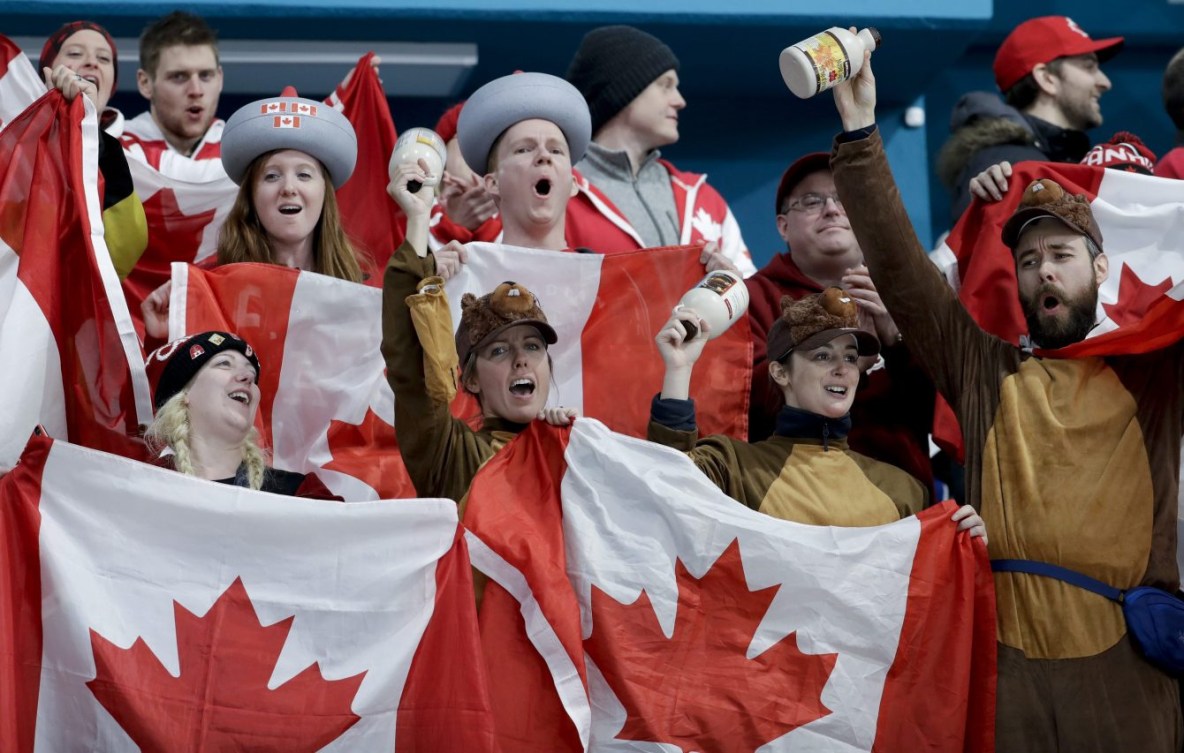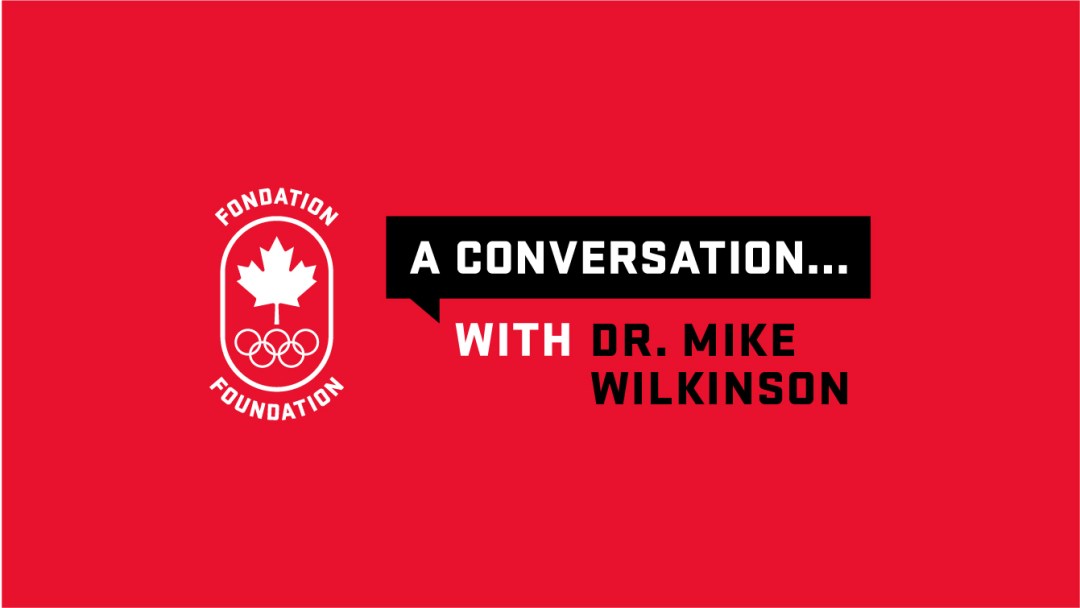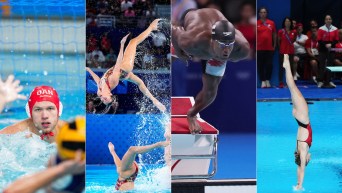Behind Team Canada: Meet the doctor helping Olympic hopefuls navigate the pandemic
While cheering on Team Canada athletes, it can be easy to forget that there is always a team behind the team.
These oft-unseen team members have individual specialties that run the gamut – from communications to transportation to sports science and technology to nutrition to mental health, to name a very small few.
In a year as unpredictable as 2020 has been, one of Team Canada’s MVPs has been Chief Medical Officer (CMO), Dr. Mike Wilkinson.
Known simply as Dr. Mike to those who work with him, his job is far from simple.
During the ongoing pandemic, he’s been lending his expertise to the World Health Organization while sharing with Team Canada the best information he can about how to train and prepare for the Olympic Games under the most unusual of circumstances.
In collaboration with the Canadian Olympic Foundation, Team Canada talked with Dr. Mike about his journey, from his upbringing in South Africa and career in sport medicine, to his role as Director of Medical Services at the Vancouver 2010 Olympic Winter Games, to what it means to be the CMO for Team Canada going into a postponed Tokyo 2020.
Q: Was being a doctor something you wanted to do from a young age?
Dr. Mike: No, it wasn’t actually. It was funny, when I was trying to figure out what to do with my life, which is a never-ending journey, I was looking at accounting and medicine. Two very different career paths. I ended up doing medicine. One of my original areas of focus was to help with infectious diseases. Given the situation we are in now, it’s very interesting how things come about.
Q: South Africa to Vancouver is a very long journey. How did you end up in Canada?
Dr. Mike: I would say it was by a number of coincidences and gratuitous moments really. My family was in South Africa and I never planned to leave. We had a very unfortunate murder in the family and we decided to travel and have a break. Through various circumstances, we ended up in northern British Columbia in Canada where my wife and myself worked as emergency family physicians before ending up in Vancouver.

Tessa Virtue of London, Ont. and Scott Moir of Ilderton, Ont. take a bow before accepting their gold medals in the ice dance final, the free dance, at Pacific Coliseum at the Winter Olympics in Vancouver, B.C, Monday, Feb. 22, 2010. (Photo: Mike Ridewood/COC)
Q: What were your takeaways from being the Director of Medical Services at Vancouver 2010 and the H1N1 virus that surrounded those Games and how do you apply that to the current environment?
Dr. Mike: That situation prepared us very well, not only because we had close contact with public health both nationally and internationally, but also pandemic planning for the 2010 Games and scenario planning, which looking back, is almost identical to what we are working with now. We had to look at planning the Games with or without a vaccine, much like current day. We were fortunate to have the vaccine available just before the torch relay. It was almost a dress rehearsal for what we’re doing now.
Q: Do you believe that the Tokyo 2020 Games will go on without a vaccine like the Organizing Committee has said so far and can they go on without a vaccine with spectators?
Dr. Mike: I think we have to plan for these Games without a vaccine. Vaccines usually take long to develop even with accelerated testing and trials that are going on. I do believe we can do it safely without a vaccine, but I think it’s going to take some major modifications to how the Games are run and how we, as support staff, the Health Services Team, athletes and coaches are managed. It is essentially my role to make sure we can attend and train for the Games and the athletes can do this safely. Ultimately, my responsibility is the health and safety of the athletes and their coaches and working with athletes directly to ensure we are all working together.

Canada’s fans celebrate winning gold at the end of a mixed doubles final curling match against Switzerland at the 2018 Winter Olympics in Gangneung, South Korea, Tuesday, Feb. 13, 2018. (AP Photo/Natacha Pisarenko)
Q: Sport psychology is an important element in any athlete journey. Where does that play into the negative effects of the pandemic?
Dr. Mike: Sport psychology is extremely important. I’ll quote Marnie McBean, Chef de Mission for Tokyo 2020 on this one. The athletes have been planning their entire lives down to the second for the Olympic Games. You’ve got a sudden change in direction, the uncertainty, you’ve got all these unknowns and the stress and anxiety. Now we’re in this space where athletes will have to spend an extra year training to get to that start. It’s a big task to get that extra year in and all athletes are in different stages of their careers, from their first Games to looking towards retirement. Dealing with that certainly does train you to develop a lot of skills, but it also requires an incredible amount of support mentally and performance-wise to get through that.
Q: What is it about sport that attracted you to this area of the business?
Dr. Mike: It was a winding road, the first sporting event I volunteered with from a medical capacity was supporting one of my colleagues in a marathon in South Africa. Sports have always been of interest to me and when I got into Vancouver, I looked into how to get involved in the sports I knew best, which are rugby and rowing. I have been involved ever since! Sport is incredible. It is a phenomenon that has an incredible power to inspire people and bring people together, bringing out the best and sometimes worst in people. The power of sport can be a beacon of hope in this pandemic and if we can get to Tokyo in the summer of 2021, it will provide a period of enjoyment for the world to once again celebrate.
With the postponement of Tokyo 2020, there’s an additional need for increased funding to enable athletes to continue their training for an extra year. Canadians like you can play a part in their success at reaching their goals by making a donation to the Canadian Olympic Foundation here.
If you would like to learn more about Dr. Mike and how he is helping Team Canada athletes stay safe and healthy, you can watch the full interview here.






